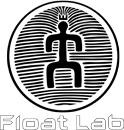NSF standards have been written for conducting design assessments, performance and safety testing, and disinfection efficacy testing of many different product types. Often, NSF writes a new protocol or standard to address a product type that lacked certain barometers or measures of quality. That is the case with the 2013 publication of the NSF CCS-12804: Component Certification Specification for Sensory Deprivation and Floatation Systems or Related Equipment.
NSF has a long history of creating and updating the evaluation/certification criteria for a variety of pool, spa and water park equipment under the standard NSF/ANSI 50. NSF has been testing and certifying products for the pool/spa industry since 1960. Criteria in NSF/ANSI 50 now are referred to or required in public health codes, construction codes and other guidelines.
NSF International has become one of the most trusted names in public health by writing national standards and certifying products to help ensure the safety of recreational water products. NSF is widely recognized for its scientific and technical expertise in the environmental and health sciences. NSF International is a Pan American Health Organization/World Health Organization Collaborating Center on Food Safety, Water Quality and Indoor Environment. Due to this history of service to the industry and technical credentials, NSF was asked by public officials and product manufacturers to address the topic of floatation and sensory deprivation systems.
